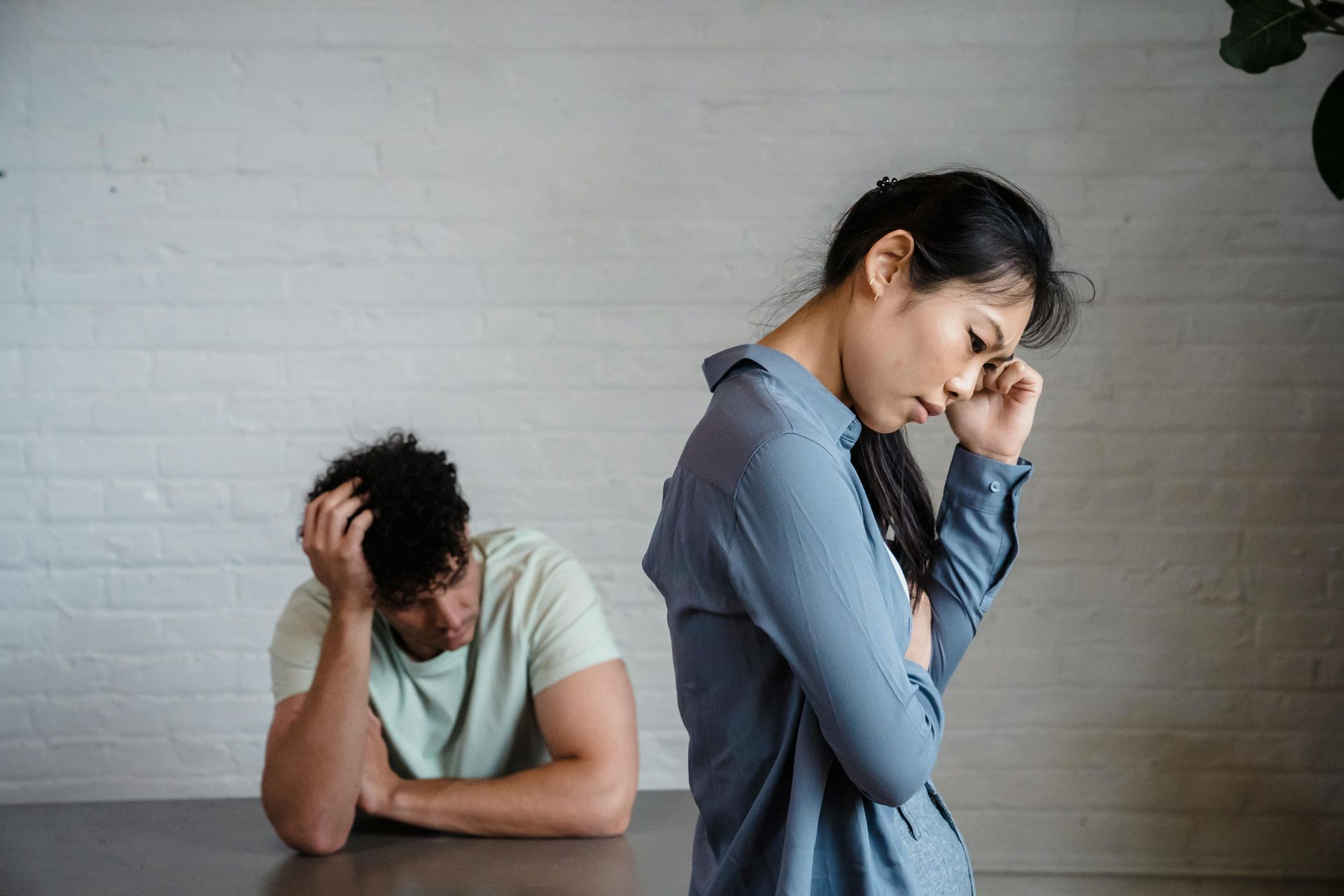Couples/ marriage Counselling
When you participate in couples counselling, you have an opportunity to get to know your partner again.
Couples counselling can guide you through your unresolved issues, including the emotional baggage from your family of origin that may be re-created and played out in your current relationship. You have an opportunity to identify how your prior experiences “colour” how you experience your life now, and can learn how to neutralize the negative impact of your histories. In doing so, you can visualize the relationship that you want, discover how to accomplish it, and begin to work toward your relationship goals.
At The Family Enhancement Centre, we can help. We are specialists and posses over a decade of experience helping couples become more connected, closer and better able to handle disagreements, anger and conflict. Our friendly therapists are skilled at quickly putting you at ease and making each session a positive experience.
Services are available from our counselling facilities in Brampton and Orangeville.

Therapy unique to YOU
No two couples are the same, which is why our therapists at The Family Enhancement Centre personalize their approach to fulfill your unique needs.
Whether you require short-term support or more intensive therapy, we are here to help you find the right path forward.
Our therapists are trained in various modalities, including cognitive-behavioural therapy, emotionally focused therapy, and narrative therapy, ensuring that you receive the care that is best suited to your unique situation.
Typical Reasons for Couples counselling
It is important to remember that no issue is too big nor too small. Whatever problem you are facing, our skilled Therapists will help you and your partner navigate it as a team.
Below are just some of the common reasons couples counselling is pursued:
- Communication Problems: If you find it difficult to talk to your partner without arguments or misunderstandings, counselling can help you develop effective communication skills
- Trust Issues: Whether due to infidelity or other breaches of trust, counselling provides a space to rebuild trust and restore your relationship’s foundation
- Life Transitions: Significant life changes, such as having children, relocating, or retirement, can put a strain on your relationship. Counselling helps you navigate these transitions together.
- Financial Disagreements: Money matters are a common source of conflict in relationships. You and your partner can address financial disagreements, create a shared budget, and develop a healthier approach to managing finances together through counselling.
- Intimacy Concerns: If you and your partner are experiencing a decline in physical or emotional intimacy, you get the chance to identify the underlying problems through counselling and reconnect on a deeper level.
- Blended Family Challenges: Merging families can bring unique challenges, especially when it comes to parenting and establishing new family dynamics. Counselling can provide guidance and support as you navigate these complexities together.
Why Choose Therapy?
Sometimes when you are in the midst of a storm, it is hard to determine the way out.
Couples counselling offers a safe space for both partners to address problems, express feelings, gain insights into relationship dynamics, and develop the tools needed to strengthen their bond.
Here are some benefits of couples counselling:
- Improved communication
- Conflict resolution skills tailored uniquely for your relationship
- Deeper understanding of your partner's needs
- Effective coping skills
- Deeper self-awareness and accountability
- Restored trust and/or intimacy

Is Couples Counselling effective?
Studies show that couples counselling can be very effective.
- Emotion-Focused Therapy (EFT)
has been found to be effective in
70-75% of cases. (See
here for more)
- 60-70% of couples who undergo Cognitive Behavioral Therapy (CBT) report improvements in relationship satisfaction (See here for more)
But it is very important to consider that the effectiveness of couples therapy is highly dependent on a few factors:
- Your Motivation and Readiness for Change
- Consistency
- The Therapeutic Relationship (i.e. the bond between yourself and your therapist)
If you are resistant to your therapist's endeavors to help, you may not see the results you wish to see.
If you have any further question, feel free to reach out to us!
My Partner Refuses to Join Me, What do I do?
Preferably, a couple agrees to go together for counselling, but often significant progress can be made when only one of the couple comes. The partner who comes to counselling often learns effective ways he / she can change his / her own thoughts and behaviours that are contributing to the problem in the relationship. If one partner begins to make significant changes in his/her behaviour, the other frequently begins to respond in a favourable way. Sometimes the other partner will agree to go to counselling later.
Individual counselling can help the one who seeks help to see the relationship more clearly and determine whether or not it is realistic to expect to achieve the desired changes in the relationship.
I've fallen out of love with my partner, will therapy help?
Falling in love is often the term used to describe the feelings one has for the strong attraction one has for another. It is, however, only one aspect of love. There is typically a sense of being “swept off one’s feet” and of having no choice about these powerful feelings. Mature love, however, is more than a feeling. In fact, it is a conscious choice or decision that is manifested in action.
Loving is a learned behaviour. We learn to love primarily from our parents and other significant people in our lives. Sometimes our partner has learned to express love in a way that is well intended but does not meet our particular love needs. Counselling can help clarify each other’s “love language” and restore love feelings.
We can help on an individual basis, as a couple or with your whole family to share information or help improve your relationships.
Can a relationship survive infidelity?
Yes, a relationship can survive infidelity, but it requires significant effort, commitment, and therapeutic support.
Healing from infidelity often involves rebuilding trust, improving communication, addressing underlying issues that contributed to the betrayal, and fostering emotional intimacy.
Couples therapy, such as Emotionally Focused Therapy (EFT) or Cognitive Behavioral Therapy (CBT), can help both partners navigate the complex emotions and rebuild a healthier, more resilient relationship. However, success depends on both partners' willingness to engage in the process and work through the challenges together.



